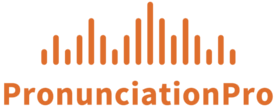
“Is english the universal language?” is a common question many people ask. Well, you’ll probably need at some point in life. Read on to learn more!
If the question “is English the universal language?” has been on your mind lately, you’ve come to the right place.
Whatever your plans are for the future, we can assure you that things will go a lot smoother if you are fluent in English.
Not convinced?
Check out these five cases to see how having English in your language toolbox is essential to all your future plans.
Is English the Universal Language?
The short answer to this question is yes. Yes, it is.
Even though by the total number of speakers Mandarin wins; English is spoken more widely than Mandarin ever hopes to be, as 20% of Earth’s population speaks English.
In addition, we have 60 countries out of 196 countries that have declared English as their official language.
Once you add all those numbers together and put the fact that English is the official language of organizations like the United Nations, the European Union, NATO and the European Free Trade Association on top; the answer to the question becomes clearer.
Yes, English is the world’s most universal language.
Case 1: Access to Higher Education
Now that we established the importance and universality of English, here are the cases and benefits that English provides to its speakers.
Case number one is about access to selective academic institutions.
The top five universities worldwide all have English as their language of instruction, so in order to even think about getting into any of those universities, having fluent English is a given.
As for other universities, more of them are adding English courses to their programs or they’re completely shifting their language of instruction to English as well.
Case 2: Access to Jobs
Being bilingual gives you an edge over other competing applicants for your dream job, and if that second language is English, then your edge is even sharper than before.
English is known as the language of business, so if your field has any international elements, English is a must.
Same goes if you are in a scientific or academic field. In order to communicate your papers and works to a wider audience, you’ll have to either write it in English or present it in English.
Moreover, if your job has nothing to do with other English-speaking elements, your employers will still prefer it if you have English in your toolbox regardless in case you had to deal or negotiate with English-speaking clients or customers.
Speaking English confidently in meetings and other events will go a long way in establishing your career.
Case 3: Access to Knowledge
55% of the content available on the internet is written in English, with Russian in the second place covering only 6% of the internet’s content.
So it is needless to say that you might be at a disadvantage if you can’t read English efficiently.
Furthermore, you can explore new topics or even further your education online through free knowledge hubs and taking courses.
Case 4: Access to Literature
We’ve talked about the hard sciences, but what about literature and art?
By learning English, you can enjoy some of the world’s favorites in literary works, like Shakespeare and other classics.
While translations are available for most if not all of those works, it’s not the same. Translations can never fully encompass the way the author writes, their tone and even the cultural references.
Case 5: Access to Fun
Yes, English is a lot of fun. It can’t be all about studying and establishing your career.
If you’re a movie buff or a connoisseur of music, you can’t fully enjoy American blockbusters or old westerns with too-fast and too-jarring subtitles on the screen.
The same goes for international events and festivals. For example, English is the official language of the Olympics and it would be a shame for you to go and not enjoy it as fully as an English-speaker would.
Convinced Yet?
Is English the universal language? The answer is a solid yes. After reading the five cases showcasing how English is the universal language, make sure to start integrating it in your daily life!
Want to know more? Go to our blog for more articles about mastering English and nailing your accent and pronunciation.
